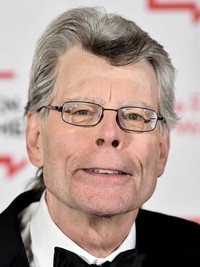Stephen King

With sales of over 300 million copies of more than 70 books, plus dozens of stories adapted for film and television, Stephen King has been the dominant American storyteller for over 25 years. While King wrote in a wide variety of genres, from the coming-of-age short story The Body (1982) to the psychological thriller Misery (1987), King was most closely associated with horror and fantasy stories with supernatural elements. A great storyteller with an eye for detail and an accessible narrative tone, King always grounded his fantastic elements in recognizable environments, while his demons often highlighted the rocky emotional dynamics of families and the ravages of dysfunction and addiction. Cultural critic Robin Wood once concluded that "The horrors of the King world are the horrors of our culture writ large, made visible and inescapable." With this curious but huge appeal, the name Stephen King became a powerful brand that sold books and film tickets, even though his name attachment to a film was hardly a guarantee of a good movie. Among the best King-based feature films were Brian De Palma's "Carrie" (1976), David Cronenberg's "The Dead Zone" (1983), Rob Reiner's "Stand by Me" (1986), Stanley Kubrick's "The Shining" (1980), which took more liberties than King was happy with, and Frank Darabont's "The Shawshank Redemption" (1995). The prolific writer's output diminished somewhat following serious injuries he sustained in a 1999 roadside accident, but just as throughout his career, new novels like Under the Dome (2009), speculative alt-history 11/22/63 (2011) and End of Watch (2016) were highly anticipated, topped the bestseller lists, and usually found its way to the screen as a feature film or television miniseries that drew consistently strong audiences.